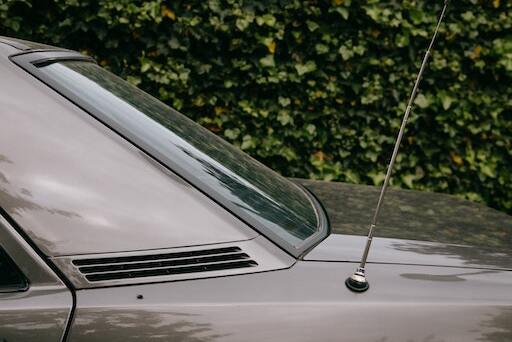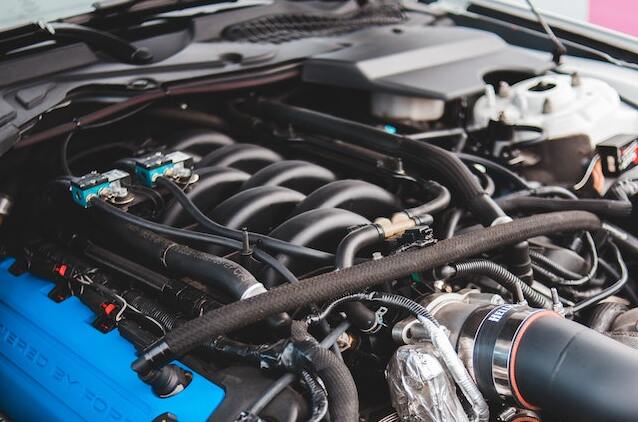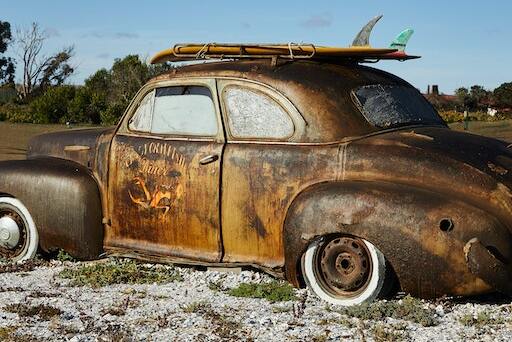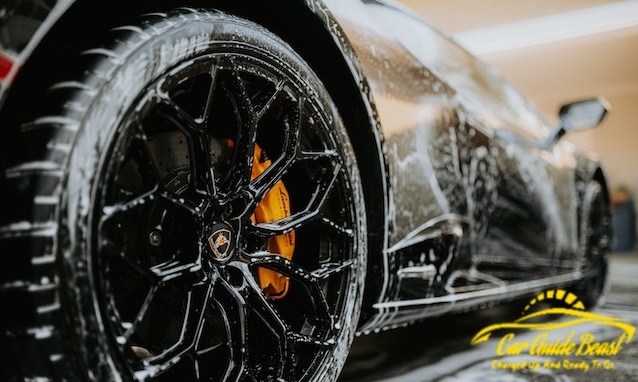Car washes have become increasingly popular as a convenient and time-saving option for car owners to keep their vehicles clean. However, there has been a growing concern are car washes bad for your car. In this article, we will explore the potential risks associated with car washes and provide valuable insights on how to minimize these risks. So, let’s dive in and uncover the truth about car washes.
Are Car Washes Bad For Your Car?
Car washes have gained immense popularity due to their convenience and efficiency. They offer a quick and hassle-free way to maintain the cleanliness and appearance of your car. However, some car owners worry that the mechanical processes and chemicals used in car washes may harm their vehicles. Let’s examine the types of car washes available and understand the potential risks involved.
Types of Car Washes
Before investigating ”are car washes bad for your car” we should know about types of car washes. There are three main types of car washes: automatic car washes, hand washes, and self-serve car washes. Automatic car washes utilize mechanized systems and brushes to clean the car, while hand washes involve manual labor by trained professionals. Self-serve car washes provide a do-it-yourself option, allowing car owners to clean their vehicles using the provided equipment. Each type has its own advantages and potential drawbacks.
Potential Risks of Car Washes

It’s essential to be aware of the potential risks associated with car washes to make informed decisions about the care of your vehicle. Let’s explore some common risks:
Scratches and Swirl Marks
One of the primary concerns with car washes is the possibility of scratches and swirl marks on the car’s paintwork. Automatic car washes that use brushes may inadvertently cause scratches, especially if the brushes are not well-maintained or if there is excessive dirt or debris on the vehicle.
Damaged Paintwork
Are car washes bad for your car? its a big deal when you think about your car’s paint. Car washes can inadvertently cause damage to your car’s paintwork. The use of aggressive brushes, harsh chemicals, or improper techniques can result in scratches, swirl marks, and even paint chips. These damages can compromise the appearance of your vehicle and potentially lead to rust or corrosion if left untreated.
Imagine the frustration of seeing unsightly scratches or paint peeling off due to a car wash gone wrong. To mitigate this risk, it’s essential to choose car wash services that prioritize gentle cleaning methods, employ soft materials, and use high-quality cleaning products. Additionally, regular maintenance like waxing can provide an extra layer of protection against paint damage.
Exterior Accessories and Antennas

Car washes may not always be gentle on exterior accessories such as spoilers, roof racks, or antennas. These components can get snagged or damaged if not removed or properly secured before entering the car wash.
Water Intrusion and Electrical Components

When you think ”are car washes bad for your car” the first thing which comes in our mind is electric wiring of your car. Water intrusion during car washing can pose a significant risk to the vehicle’s electrical components.
High-pressure water jets, commonly used in car washes, can find their way into vulnerable areas, such as sensors, wiring, and connectors. This can lead to electrical malfunctions and potentially costly repairs.
Imagine the consequences of water seeping into sensitive electronic systems, causing short circuits or corrosion. It’s crucial to inspect the car before entering a car wash for any pre-existing leaks or vulnerabilities. Taking precautions like ensuring proper seals and protection for electrical components can help minimize the risk of water intrusion.
After the car wash, a thorough inspection to check for any signs of water damage and promptly addressing any issues can help safeguard your vehicle’s electrical systems.
Chemical Damage

Are car washes bad for your car if we use car wash soap with heavy chemicals? Chemicals used in car washing can have a profound impact on the surfaces of your vehicle. For instance, aggressive detergents containing strong alkaline or acidic compounds can wreak havoc on your car’s paintwork.
These chemicals can strip away protective layers, leaving your car vulnerable to issues like fading, peeling, and even corrosion.
Imagine the damage caused by highly acidic solutions that eat away at the clear coat, leaving behind unsightly blemishes. Additionally, certain chemicals may react unfavorably with plastic trims or rubber seals, resulting in discoloration or even deterioration over time.
To safeguard your vehicle, it’s crucial to select car wash products formulated specifically for automotive use, preferably opting for gentle, pH-neutral solutions that preserve your car’s appearance and longevity.
Factors Influencing Car Wash Risks
Several factors can influence the risks associated with car washes. Understanding these factors can help car owners make informed choices when it comes to selecting a car wash and protecting their vehicles.
Quality and Maintenance of Car Wash Equipment
The quality and maintenance of car wash equipment play a crucial role in minimizing potential risks. Car washes that invest in modern, well-maintained equipment are more likely to provide a safer and gentler cleaning experience for your car.
Experience and Skill of Car Wash Operators
The experience and skill of car wash operators can greatly affect the outcome of the car wash. Well-trained professionals who follow proper techniques and guidelines are more likely to ensure a thorough and safe cleaning process.
Type of Car Wash Chosen
Different types of car washes have varying levels of risk associated with them. Automatic car washes with brushes may carry a higher risk of scratches compared to hand washes or touchless car washes that use alternative cleaning methods.
Precautionary Measures Taken by Car Owners
Car owners can take several precautionary measures to minimize risks during car washes. These include removing or securing exterior accessories, checking for leaks or vulnerabilities before entering the car wash, and inspecting the car afterward for any potential damage.
Preventive Measures
While car washes may carry some risks, there are various preventive measures car owners can take to protect their vehicles. By following these measures, you can enjoy the convenience of car washes without compromising the condition of your car.
Choosing Reputable and Professional Car Wash Services
Opting for reputable and professional car wash services can significantly reduce the risks associated with car washes. Look for businesses with positive reviews and a track record of customer satisfaction. Professional car washes often invest in high-quality equipment, trained staff, and safer cleaning products.
Hand Washing Techniques to Minimize Risks
If you prefer to hand wash your car, following proper techniques can help minimize the risks of damaging the paintwork. Use a gentle touch, a clean and soft microfiber wash mitt or sponge, and a pH-neutral car shampoo to avoid scratches and chemical damage.
Protecting the Car’s Exterior with Wax or Sealants
Applying wax or sealants to the car’s exterior provides an additional layer of protection against scratches and chemical damage. These products create a barrier that helps repel dirt, water, and harmful UV rays, prolonging the life and appearance of the car’s paint.
Removing Exterior Accessories and Antennas
Before entering a car wash, remove or properly secure any exterior accessories or antennas that could potentially get damaged or cause harm to the vehicle during the cleaning process.
Inspecting and Drying the Car Properly
After a car wash, thoroughly inspect the vehicle for any signs of damage or water intrusion. Pay attention to areas around windows, doors, and seals. Properly dry the car using a microfiber towel or a leaf blower to prevent water spots and potential damage from lingering moisture.
The Importance of Regular Car Maintenance
Regardless of how you choose to clean your car, regular maintenance is essential to keep it in optimal condition. Here are some key maintenance practices to prioritize:
Frequent Washing and Detailing
Regularly washing your car, whether through professional services or DIY methods, helps remove dirt, grime, and contaminants that can degrade the paint over time. Additionally, periodic detailing can restore the car’s shine and protect the exterior surfaces.
Monitoring Paintwork and Addressing Damages Promptly
Keep an eye out for any scratches, chips, or other damages to the paintwork. Addressing these issues promptly can prevent further deterioration and protect your car from potential rust or corrosion.
Regular Inspections and Maintenance Checks
Regular inspections and maintenance checks, including fluid top-ups, tire rotations, and engine tune-ups, ensure the overall health and longevity of your vehicle. By staying proactive with maintenance, you can address potential problems early on and avoid costly repairs in the future.
DIY Car Washing Tips
If you prefer to wash your car at home, here are some steps and tips to ensure a safe and effective cleaning process:
Step 1: Gather the Necessary Tools and Products
Collect the essential tools and products, including a bucket, car shampoo, a microfiber wash mitt or sponge, soft brushes, wheel cleaner, glass cleaner, and drying towels.
Step 2: Rinse the Car
Begin by rinsing the car with water to remove loose dirt and debris. Use a hose with an adjustable nozzle or a pressure washer for better control.
Step 3: Clean the Wheels
Apply a suitable wheel cleaner and use a brush to clean the wheels thoroughly. Rinse off the cleaner and move on to the next step.
Step 4: Wash the Car
Fill a bucket with water and add a small amount of car shampoo. Use the soapy water and the wash mitt or sponge to gently clean the car, starting from the top and working your way down. Rinse the mitt or sponge frequently to avoid trapping dirt and causing scratches.
Step 5: Rinse and Dry
Once you’ve cleaned the entire car, rinse off the soap with water. Afterward, use drying towels or a leaf blower to remove excess water and prevent water spots.
Step 6: Finishing Touches
Use a glass cleaner and a microfiber cloth to clean the windows and mirrors. Inspect the car for any missed spots or areas that require further attention.
Remember to always follow the manufacturer’s instructions for the specific tools and products you use. Avoid washing your car under direct sunlight to prevent premature drying and potential damage to the paint.
Alternative Cleaning Methods
If you’re concerned about the potential risks associated with traditional car washes, you may consider alternative cleaning methods that offer a safer approach:
Waterless Car Wash Products
Waterless car wash products are designed to clean the car’s exterior without the need for water. These products typically contain a blend of lubricants and cleaning agents that can remove dirt and grime effectively. Waterless car washes can be a convenient option for those who don’t have access to water or prefer an environmentally friendly approach.
Steam Cleaning
Steam cleaning utilizes high-temperature steam to clean and sanitize various surfaces of the car, including the exterior and interior. This method effectively removes dirt, grease, and stains without the use of harsh chemicals. Steam cleaning is gentle on the car’s surfaces and can help eliminate bacteria and allergens.
Touchless Car Washes
Touchless car washes, also known as no-touch car washes, utilize high-pressure water jets and specialized detergents to clean the vehicle without physical contact. This method minimizes the risks of scratches and swirl marks, making it a safer option for preserving the car’s paintwork.
Conclusion
Car washes can be a convenient and efficient way to keep your car clean and presentable. However, it’s important to be aware of the potential risks associated with car washes and take preventive measures to protect your vehicle. By choosing reputable services, employing proper hand washing techniques, and staying proactive with regular maintenance, you can enjoy the benefits of car washes without compromising the condition of your car.
Remember, maintaining a clean and well-maintained vehicle not only enhances its appearance but also contributes to its longevity and value.
FAQs
Can automatic car washes cause scratches?
Automatic car washes that use brushes can potentially cause scratches if the brushes are not well-maintained or if there is excessive dirt or debris on the vehicle. Opting for touchless or hand washes can be a safer alternative.
How often should I wash my car?
The frequency of car washing depends on various factors, including your location, driving conditions, and personal preference. As a general guideline, washing your car every two to four weeks is recommended to remove dirt and maintain its appearance.
What should I look for in a professional car wash service?
When choosing a professional car wash service, consider factors such as their reputation, customer reviews, quality of equipment, and the use of gentle cleaning techniques. It’s also important to inquire about any additional services they offer, such as waxing or detailing.
Are self-serve car washes safer for my car?
Self-serve car washes can be a safer option as you have more control over the cleaning process. However, it’s important to follow proper techniques and use suitable tools and products to minimize the risk of damage to your car.
Is it bad to take your car through a carwash everyday?
Taking your car through a car wash every day can have negative effects on the paintwork and overall condition of the vehicle. Daily exposure to harsh cleaning chemicals and brushes can cause accelerated wear and tear, leading to potential damage such as scratches or fading.
